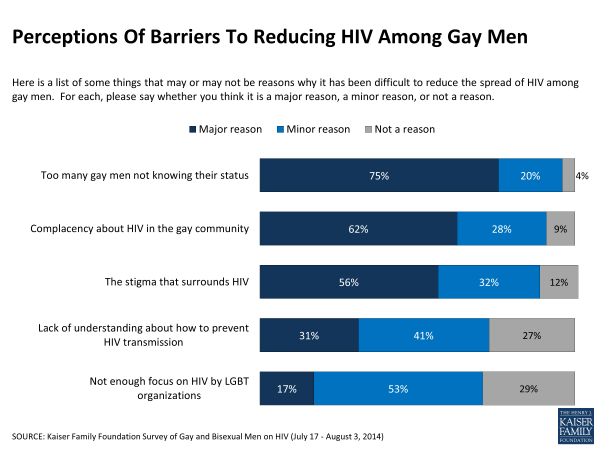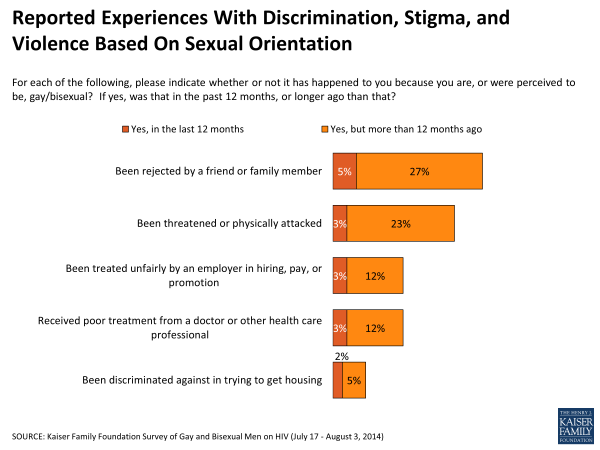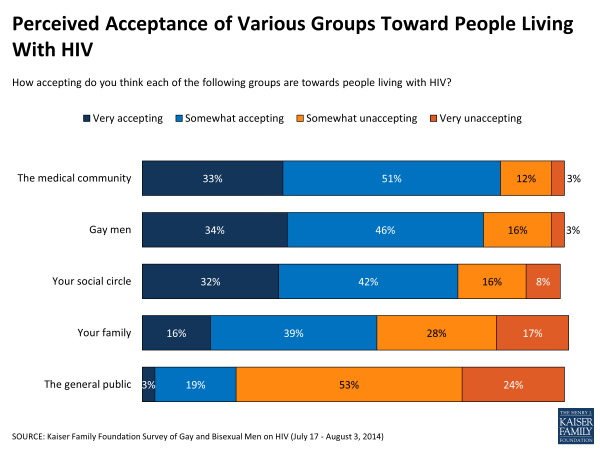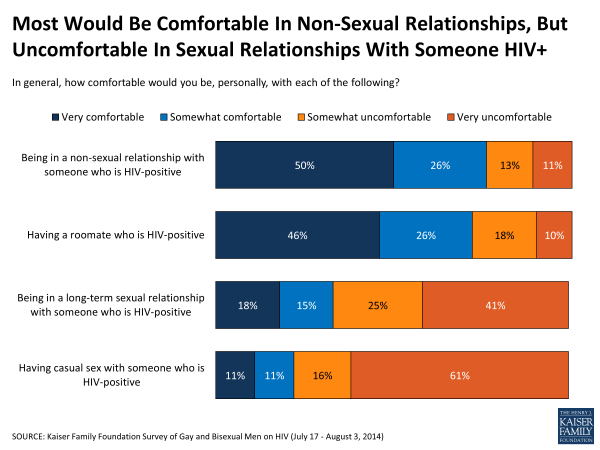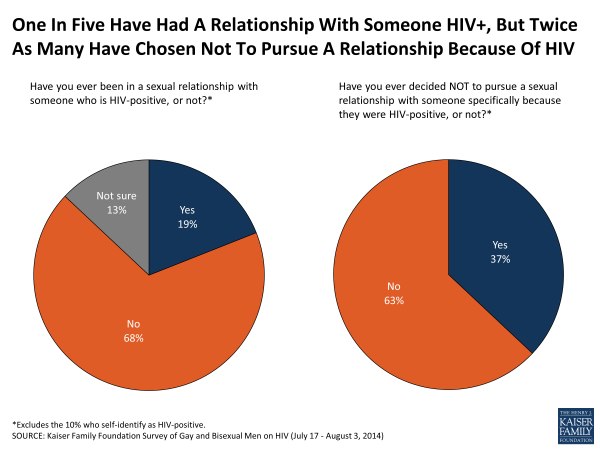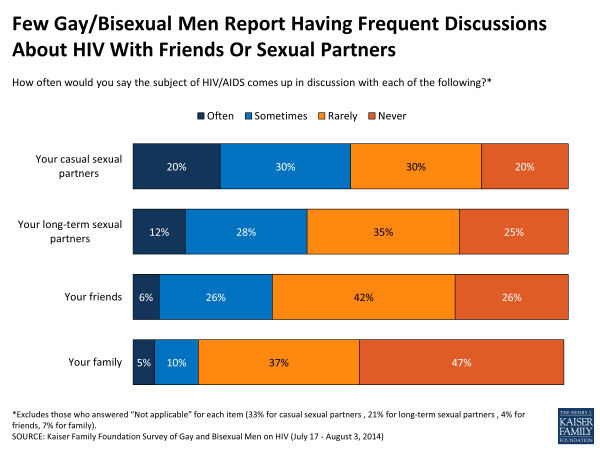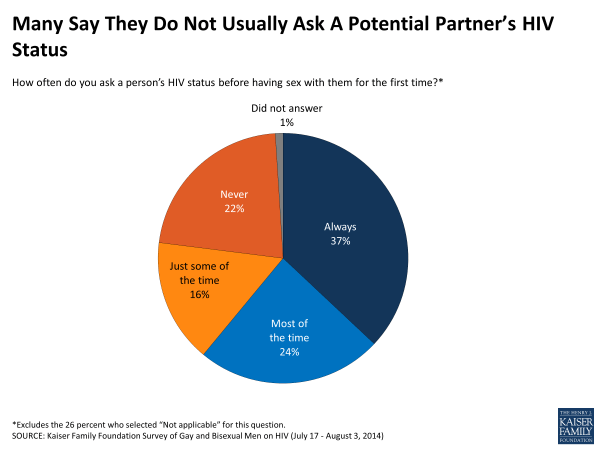HIV/AIDS In The Lives Of Gay And Bisexual Men In The United States
Section 3: Perceived Barriers, Stigma, And Talking About HIV
Perceived Barriers To Reducing HIV
When asked about reasons why it has been difficult to reduce the spread of HIV in the gay community, gay and bisexual men see a number of factors as “major” reasons, including too many gay men not knowing their HIV status (75 percent), complacency about HIV in the gay community (62 percent), and HIV-related stigma (56 percent). Just three in ten (31 percent) see lack of understanding about how to prevent transmission as a major barrier to curbing the spread of the disease, although the survey results indicate there are significant knowledge gaps about newer prevention options available to reduce the risk of contracting HIV, namely PrEP and treatment as prevention. Few (17 percent) say that lack of focus on HIV by LGBT organizations is a major reason why it has been difficult to slow the spread of HIV among gay men.
Men of color are more likely than those who identify as white to say lack of understanding about HIV prevention is a major reason (48 versus 23 percent).
Stigma, Violence, And Discrimination
Discrimination and stigma (whether HIV-related or not) is the most frequently-named issue when asked about the most important issues facing gay and bisexual men today. When it comes to their own experiences, many report having faced various forms of stigma and discrimination as a result of their sexual orientation, including being rejected by a friend or family member (32 percent), being threatened or physically attacked (26 percent), experiencing unfair treatment from an employer (15 percent), poor treatment from a medical professional (15 percent), and discrimination in trying to find housing (7 percent).
On the topic of HIV-related stigma, about a third of gay and bisexual men say that gay men as a group and their own social circles are “very” accepting towards people with HIV, and an additional four in ten say each of these groups is “somewhat” accepting. The medical community ranks similarly high in perceived acceptance (33 percent say they are “very” accepting and 51 percent say they are “somewhat” accepting). Their own families are perceived as somewhat less accepting of HIV-positive persons (16 percent “very” and 39 percent “somewhat”). However, the large majority (77 percent) of gay and bisexual men believe the general public is unaccepting of people living with HIV.
When asked why they think some people with HIV might be reluctant to tell others about their status, gay and bisexual men see a variety of factors as major reasons, including fear of rejection by family and friends (79 percent), fear of rejection by intimate partners (76 percent), fear of discrimination in housing, jobs, or other situations (76 percent), and a general desire for privacy (62 percent).
Large majorities of gay and bisexual men say they would be uncomfortable having a sexual relationship with a person who is HIV-positive, including being in a long-term sexual relationship (66 percent) and having casual sex (77 percent). By comparison, three-quarters say they would be “very” or “somewhat” comfortable being in a non-sexual relationship with someone who is HIV-positive (76 percent) and a similar share say the same about having an HIV-positive roommate (72 percent, a rate that is much higher than the general public at 46 percent).
Gay and bisexual men under the age of 35 are more likely than those ages 35 and older to say they would be uncomfortable having both sexual and non-sexual relationships with someone who is HIV-positive, as are those who identify as bisexual compared with those who identify as gay.
| REPORTED COMFORT IN SEXUAL AND NON-SEXUAL RELATIONSHIPS WITH SOMEONE WITH HIV | ||||
| Ages 18-34 | Ages 35+ | Bisexual | Gay | |
| In general, how comfortable would you be… | ||||
| …being in a non-sexual relationship with someone who is HIV-positive | ||||
| Very or somewhat comfortable | 60% | 84% | 60% | 82% |
| Very or somewhat uncomfortable | 40 | 15 | 40 | 17 |
| …being in a long-term sexual relationship with someone who is HIV-positive | ||||
| Very or somewhat comfortable | 22 | 41 | 14 | 41 |
| Very or somewhat uncomfortable | 79 | 60 | 86 | 58 |
| …having casual sex with someone who is HIV-positive | ||||
| Very or somewhat comfortable | 11 | 28 | 12 | 26 |
| Very or somewhat uncomfortable | 89 | 71 | 88 | 74 |
Some men do report having been in “serodiscordant” relationships – that is, where their partner’s HIV status is different from theirs. One in five (19 percent) of those who didn’t identify themselves as HIV-positive say they’ve been in a sexual relationship at some point with someone who has HIV, and another 13 percent say they’re “not sure” if they’ve ever been in such a relationship. Still, an even larger share of this group (37 percent) say that at some point they have decided not to pursue a sexual relationship with someone specifically because they were HIV-positive.
Another issue of importance is that of sexual violence, including intimate partner violence. Eighteen percent of gay and bisexual men say that at some time in their life, a person has attempted to force them to have sex or engage in a sex act against their will, including 4 percent who say this happened in the past year.
Conversations About HIV
Few gay and bisexual men report talking much at all about HIV with friends or even with sexual partners. Large majorities say the topic of HIV comes up “rarely” or “never” in conversations with their friends (68 percent) or family members (84 percent). Compared with the general public, gay and bisexual men are somewhat more likely to say they discuss HIV with their friends at least “sometimes” (32 percent versus 22 percent), though they are no more likely than the general public to report discussing it with family members (15 percent versus 19 percent).
While gay and bisexual men are more likely to report discussing HIV with their sexual partners than with family and friends, still a majority (60 percent) say they “rarely” or “never” discuss the topic with their long-term partners, and half (50 percent) say the same about their casual partners. While these conversations may not be occurring with frequency, gay and bisexual men are more likely than the general public to report talking with sexual partners about HIV. Among adults in general, more than eight in ten (82 percent), say the subject of HIV/AIDS “rarely” or “never” comes up in discussions with their spouse or other intimate partners. 1
When it comes to conversations about HIV with long-term sexual partners, gay and bisexual men of color are more likely than whites to say they discuss the topic at least “sometimes” (52 percent versus 34 percent), and those who identify as gay are more likely to report these conversations than those who consider themselves bisexual (47 percent versus 27 percent).
Asked more specifically about discussions at the beginning of new relationships, most gay and bisexual men (61 percent) say they ask a person’s HIV status before beginning a sexual relationship “always” or “most of the time,” although nearly four in ten say they don’t routinely ask, including 22 percent who say they “never” do so.2

